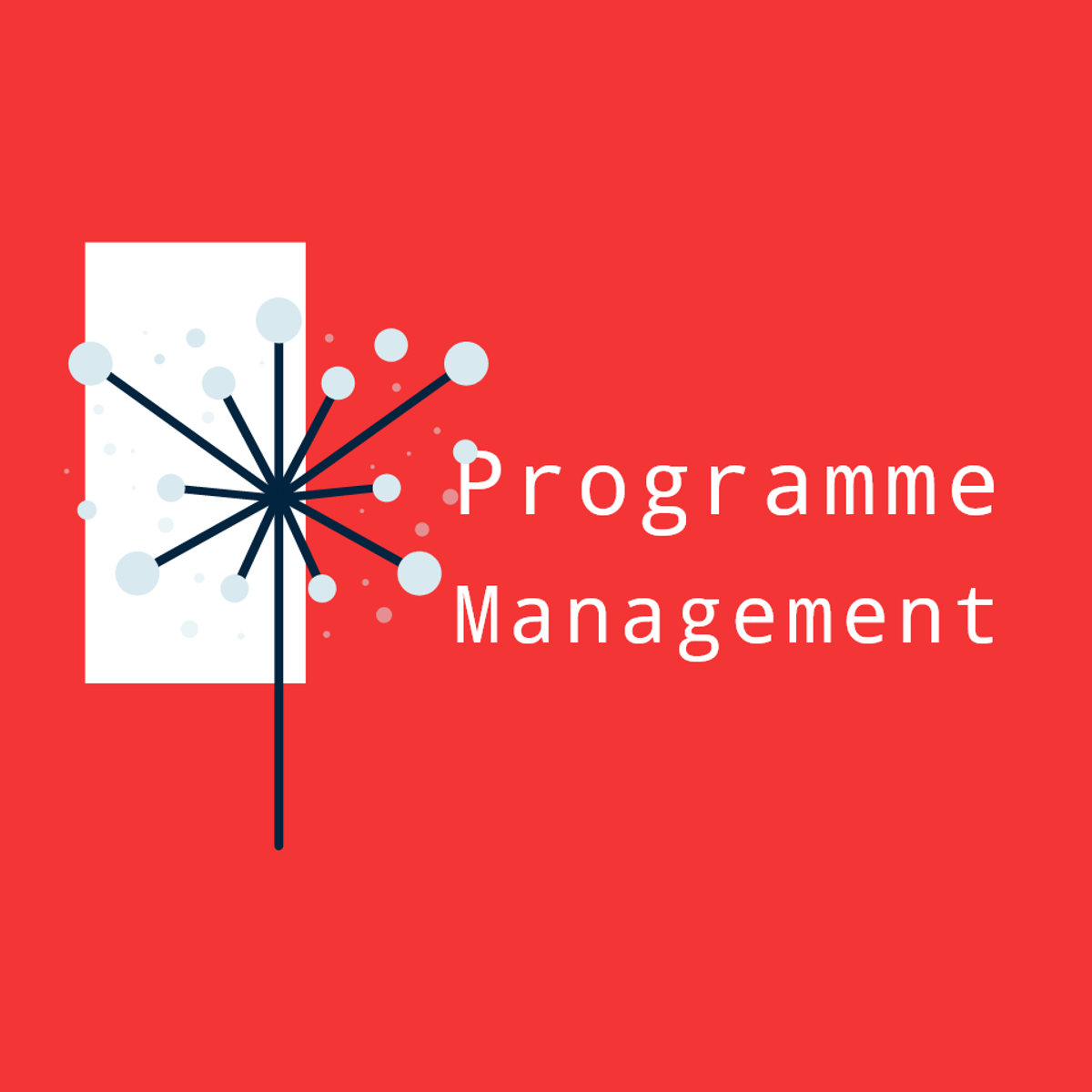Back to Courses









Leadership And Management Courses - Page 16
Showing results 151-160 of 600

Program Gate Reviews with ClickUp
By the end of this guided project, you will be fluent in creating Program Gate Review artefacts for the Planning Phase for diverse programs. You will utilise a logical diagramming plan in an agile environment to develop the solution. This will enable you to identify and classify the required components for phase reviews. Furthermore, it will help develop a structural model for learning about the field of Program Management.
If you are interested in building up the knowledge leading to this guided project, the following is the link to:
[ Developing Programme Management Blueprint with ClickUp]
https://www.coursera.org/projects/program-blueprint
[Advanced Programme Planning Phases Framework in ClickUp]
https://www.coursera.org/projects/program-advanced-planning
This Guided Project is essential for individuals wanting to learn about the field, or looking to transition into working in Program Management. This guided project is designed to engage and harness your visionary and exploratory abilities. You will use proven models in an agile environment with ClickUp to engage in a hands-on learning experience.

Oral Communication for Engineering Leaders
Taught by Rice University communication faculty from the Rice Center for Engineering Leadership (RCEL). This course covers core topics in oral communication: Communication strategy, content, data visualization, and delivery. You’ll learn key principles in
• Creating a communication strategy
• Developing a clear message and organizing persuasive content
• Creating strong visual support
• Presenting data effectively
• Presenting professionally and confidently
• Handling formal presentations, giving pitches, speaking extemporaneously, managing online presentations, and lowering
public speaking anxiety
Selected materials courtesy of Communication Faculty at Rice University - all rights reserved.

Procurement Basics
This Course includes basic information on procurement, Importance of the procurement organization and its’ role in the organization, cost vs. value, processes such as the use of RFQ, RFP, RFX, Differences between direct and indirect procurement, and Stakeholder management
The course will supported by videos, readings and a required case that will be assessed by a peer review.
In addition, a Practice Assessment (multiple choice) is available to the student. This should be helpful as there is a Final Assessment (40 Multiple Choice) at the end of the specialization in Course 7 that is required to obtain the certification.

Social Media Management
This course equips you with critical content creation and management skills. You’ll learn how to create effective social media posts and how to create a strong brand to help you build a social media presence. You’ll also learn how to establish an ongoing process to manage your content. This includes setting up a content calendar, managing and moderating your posts, analyzing data for insights and iteration, and how to increase post effectiveness. You will end the course with real-world application of your skills through a content management project.
By the end of this course, you will be able to:
• Establish and manage a social media presence
• Create a Facebook business page and an Instagram account for business
• Understand how and why to create content for social media
• Create a brand, tone, and voice for a social media presence
• Manage a content calendar for your social media presence
• Evaluate the performance of your content on social media and to iterate and optimize the performance
• Create a content calendar for your social media presence
• Manage social media content using real world data
This course is intended for people who want to learn how to create and manage a business presence on social media, including creating content, interacting and engaging with customers on social media and evaluating the results of different posts.
Learners don't need marketing experience, but they have basic internet navigation skills and are eager to participate and connect in social media. Having a Facebook or Instagram account helps and ideally learners already completed course 1 (Introduction to Social Media Marketing) in this program.

Launching Machine Learning: Delivering Operational Success with Gold Standard ML Leadership
Machine learning runs the world. It generates predictions for each individual customer, employee, voter, and suspect, and these predictions drive millions of business decisions more effectively, determining whom to call, mail, approve, test, diagnose, warn, investigate, incarcerate, set up on a date, or medicate.
But, to make this work, you've got to bridge what is a prevalent gap between business leadership and technical know-how. Launching machine learning is as much a management endeavor as a technical one. Its success relies on a very particular business leadership practice. This means that two different species must cooperate in harmony: the business leader and the quant.
This course will guide you to lead or participate in the end-to-end implementation of machine learning (aka predictive analytics). Unlike most machine learning courses, it prepares you to avoid the most common management mistake that derails machine learning projects: jumping straight into the number crunching before establishing and planning for a path to operational deployment.
Whether you'll participate on the business or tech side of a machine learning project, this course delivers essential, pertinent know-how. You'll learn the business-level fundamentals needed to ensure the core technology works within - and successfully produces value for - business operations. If you're more a quant than a business leader, you'll find this is a rare opportunity to ramp up on the business side, since technical ML trainings don't usually go there. But know this: The soft skills are often the hard ones.
After this course, you will be able to:
- Apply ML: Identify the opportunities where machine learning can improve marketing, sales, financial credit scoring, insurance, fraud detection, and much more.
- Plan ML: Determine the way in which machine learning will be operationally integrated and deployed, and the staffing and data requirements to get there.
- Greenlight ML: Forecast the effectiveness of a machine learning project and then internally sell it, gaining buy-in from your colleagues.
- Lead ML: Manage a machine learning project, from the generation of predictive models to their launch.
- Prep data for ML: Oversee the data preparation, which is directly informed by business priorities.
- Evaluate ML: Report on the performance of predictive models in business terms, such as profit and ROI.
- Regulate ML: Manage ethical pitfalls, such as when predictive models reveal sensitive information about individuals, including whether they're pregnant, will quit their job, or may be arrested - aka AI ethics.
NO HANDS-ON AND NO HEAVY MATH. Rather than a hands-on training, this course serves both business leaders and burgeoning data scientists alike by contextualizing the core technology, guiding you on the end-to-end process required to successfully deploy a predictive model so that it delivers a business impact. There are no exercises involving coding or the use of machine learning software.
WHO IT'S FOR. This concentrated entry-level program is for anyone who wishes to participate in the commercial deployment of machine learning, no matter whether you'll do so in the role of enterprise leader or quant. This includes business professionals and decision makers of all kinds, such as executives, directors, line of business managers, and consultants - as well as data scientists.
LIKE A UNIVERSITY COURSE. This course is also a good fit for college students, or for those planning for or currently enrolled in an MBA program. The breadth and depth of the overall three-course specialization is equivalent to one full-semester MBA or graduate-level course.
IN-DEPTH YET ACCESSIBLE. Brought to you by industry leader Eric Siegel - a winner of teaching awards when he was a professor at Columbia University - this curriculum stands out as one of the most thorough, engaging, and surprisingly accessible on the subject of machine learning.
VENDOR-NEUTRAL. This specialization includes illuminating software demos of machine learning in action using SAS products. However, the curriculum is vendor-neutral and universally-applicable. The contents and learning objectives apply, regardless of which machine learning software tools you end up choosing to work with.
PREREQUISITES. Before this course, learners should take the first of this specialization's three courses, "The Power of Machine Learning: Boost Business, Accumulate Clicks, Fight Fraud, and Deny Deadbeats."

AI Strategy and Governance
In this course, you will discover AI and the strategies that are used in transforming business in order to gain a competitive advantage. You will explore the multitude of uses for AI in an enterprise setting and the tools that are available to lower the barriers to AI use. You will get a closer look at the purpose, function, and use-cases for explainable AI. This course will also provide you with the tools to build responsible AI governance algorithms as faculty dive into the large datasets that you can expect to see in an enterprise setting and how that affects the business on a greater scale. Finally, you will examine AI in the organizational structure, how AI is playing a crucial role in change management, and the risks with AI processes. By the end of this course, you will learn different strategies to recognize biases that exist within data, how to ensure that you maintain and build trust with user data and privacy, and what it takes to construct a responsible governance strategy. For additional reading, Professor Hosanagar's book "A Human’s Guide to Machine Intelligence" can be used as an additional resource for more extensive information on topics covered in this module.

More on Change and Sustainability
This is Class 2 of the MOOC Specialization, Become a Sustainable Business Change Agent.
In this class you will learn more change agent skills and hear from people who have made changes in their organizations.
You will also learn more about green design and sustainability reporting.
The skills from this class will help improve products and services in your company or help the company issue its first, or an improved sustainability report.

Interpersonal Communication for Engineering Leaders
This course covers communication skills that engineering leaders use every day to motivate, inspire, and support the people in their organizations.
Speaking and writing are basic leadership communication skills. (We covered these topics in the Specialization course 1 and 3.) However, leaders also need to be skillful interpersonal communicators. Modern business requires communication skills that are effective across cultures, generations, and genders. Communication is also a key skill in building your personal brand. Leaders need to look, act, and speak like leaders. Another important leadership skill is the ability to handle difficult, emotional communications with employees, supervisors, and colleagues. Finally, engineers are often at the center of crisis communication.
In this course, you will learn
1. How to communicate in a global environment,
2. How to communicate across cultures, generations, and genders
3. How to use communication to build your personal brand, communicate your values, and your leadership promise
4. How to handle high-stakes, emotionally charged, difficult conversations with employees, supervisors and your colleagues
5. How to handle crisis communication
Required Material Disclaimer- The purchase of a case study is necessary to complete this course, as it is tied to an assessment. This case is an excellent illustration of the typical business situations requiring skillful handling of difficult conversations. Currently, the cost associated with this case study is $8.95 USD and is subject to change.
Selected materials courtesy of Communiation Faculty at Rice University - all rights reserved.

Plan Projects and Brainstorm with Mind Maps in Miro
By the end of this project, you will be able to plan projects with the mind mapping technique.
To do this, you will gain hands-on experience creating a mind map by applying guided brainstorming strategies in the Miro online visual collaboration platform for teamwork.
Note: This course works best for learners who are based in the North America region. We’re currently working on providing the same experience in other regions.
Predictive Analytics and Data Mining
This course introduces students to the science of business analytics while casting a keen eye toward the artful use of numbers found in the digital space. The goal is to provide businesses and managers with the foundation needed to apply data analytics to real-world challenges they confront daily in their professional lives. Students will learn to identify the ideal analytic tool for their specific needs; understand valid and reliable ways to collect, analyze, and visualize data; and utilize data in decision making for their agencies, organizations or clients.
Popular Internships and Jobs by Categories
Find Jobs & Internships
Browse
© 2024 BoostGrad | All rights reserved